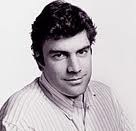
What Google's Quiet Failure Says About Its Innovation Health
11:39 AM Friday July 8, 2011
EXTRACT
Rarely do the post-industrial stars align so well for an entrepreneurial enterprise hellbent on market revolution. Between the ongoing digitalization, consumerization, and personalization of health care delivery, Google was supremely well-positioned to have as big an innovative impact on medical informatics as it's had on mass media. Admittedly, Google Health's original conception and execution as a ‘personal health records' portal wasn't particularly sexy or exciting. But then, that's what many naysayers had said about search and maps. Google had the skills and resources to iterate its way greater impact. Everyone understood that organizing the world's health care information was a worthy business ambition squarely in Google's innovation sweet spot.
The market reality proved sour. Nothing much happened. Barely three years after the service launched, Google announced its demise. Health officially dies in January; all whimper, no bang. By virtually every metric that matters, it's been a stunning disappointment. The service may not have lost Google much money but, relative to opportunities and expectations, Google Health transformed nothing. No paradigms were nicked or even nudged. Genuinely talented people with top management support and technological brilliance don't even have the satisfaction of a successful failure. (Google Wave, for example, may have been a market failure but even its critics acknowledged its innovation chops.) One of the world's most innovative companies didn't just fail to innovate as a business, it dramatically underachieved even as a technical innovator in one of the world's biggest, most dynamic, and most important industries. What happened?
Phi Beta Iota: Hugely important observations applicable to Microsoft, IBM, Oracle, etcetera. They are all in the Industrial Era pattern of fringe innovation and doing the wrong things righter, confusing money with insight. Stephen E. Arnold has been saying similar things in more depth (see his Google Trilogy) for years. No large organization with deep human and capital resources appears ready to create the World Brain & Global Game.
See Also:
Stephen E. Arnold : The Landscape of Enterprise Search



